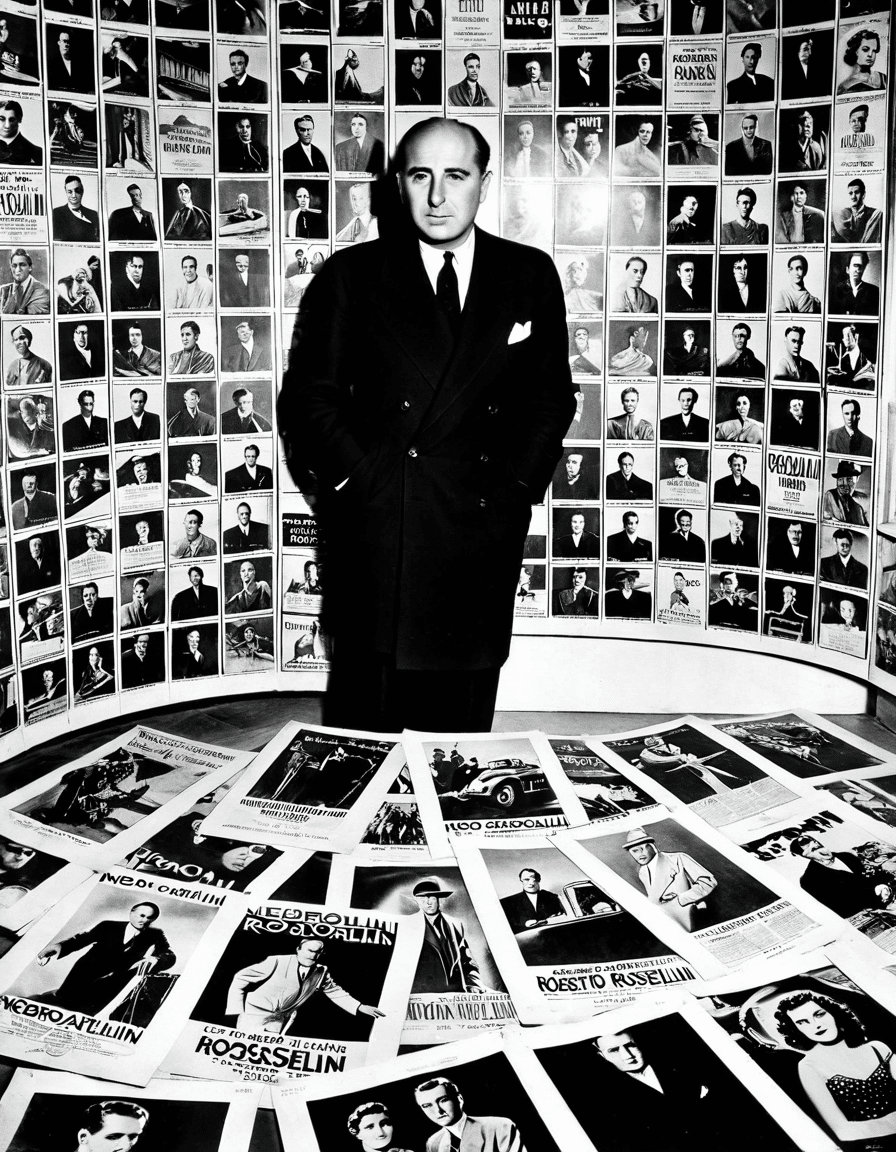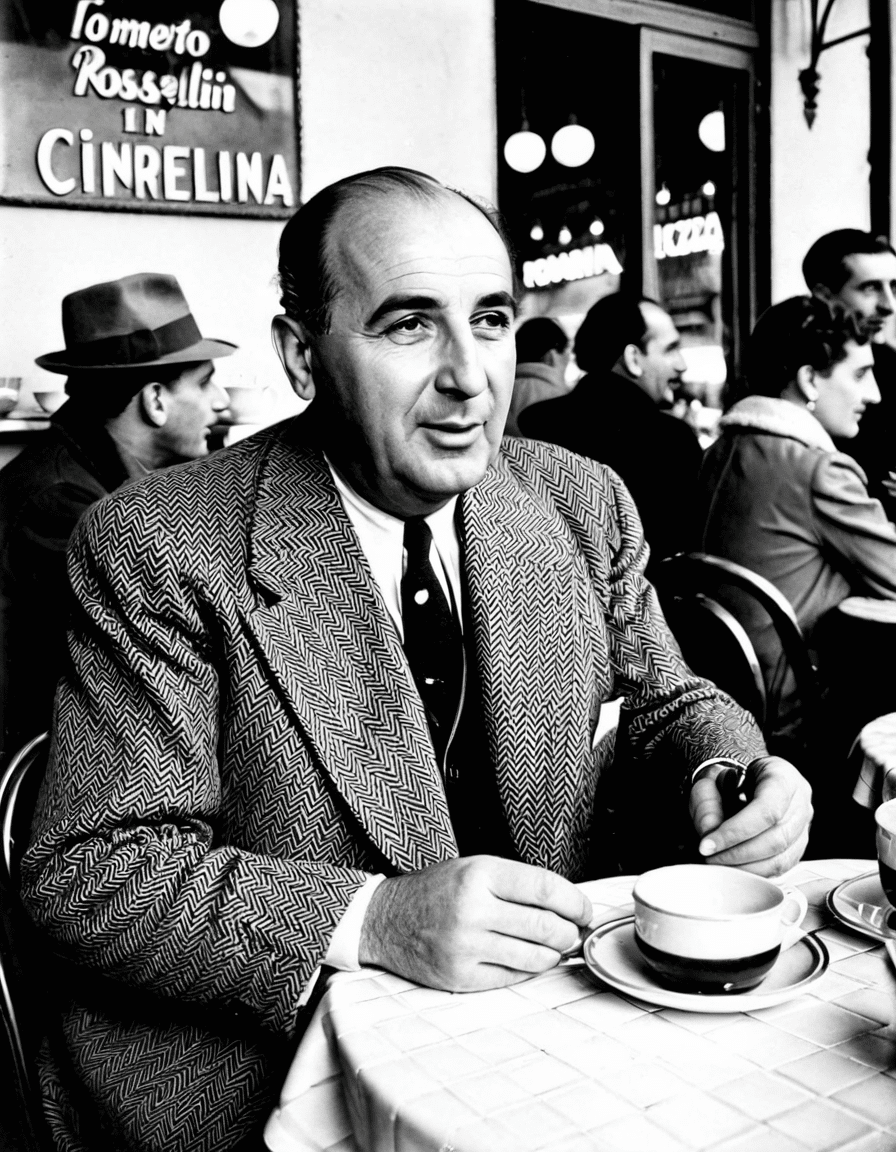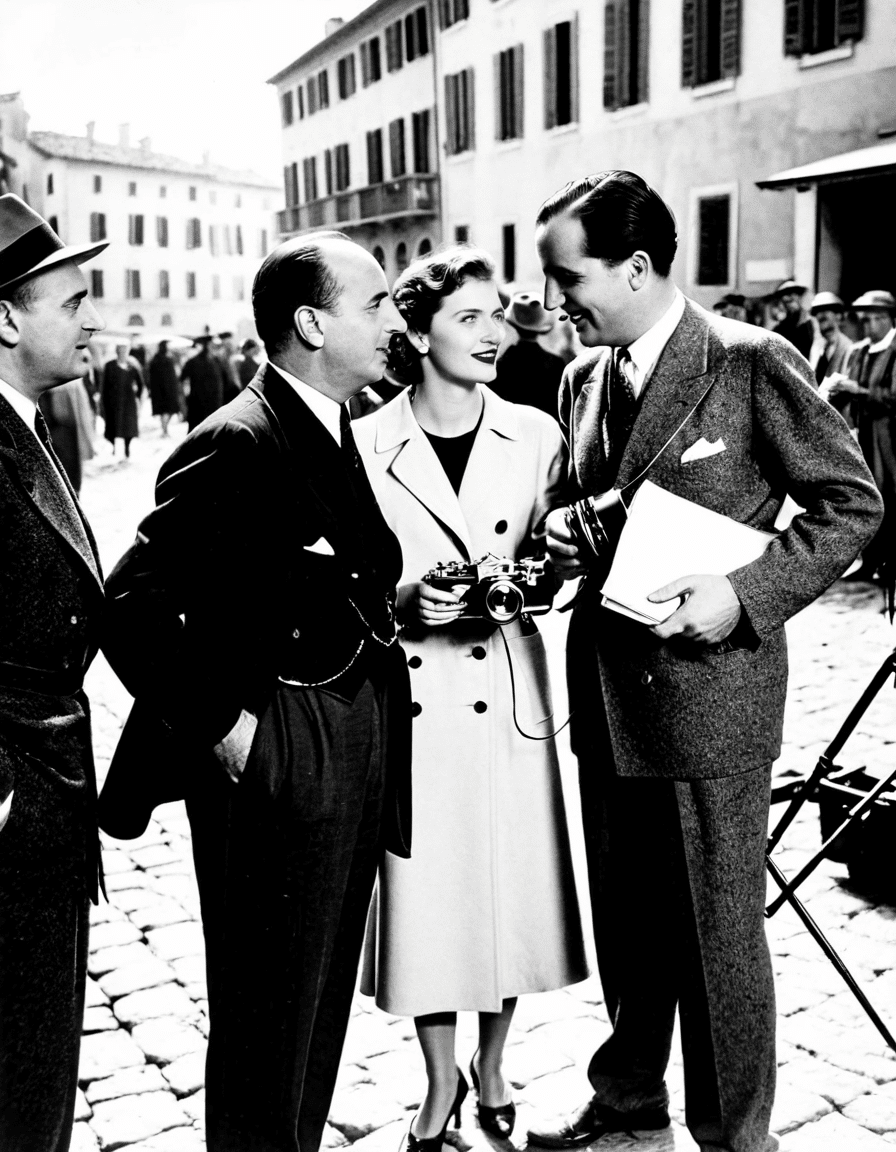
Roberto Rossellini The Visionary Behind Neorealism Cinema
Roberto Rossellini stands as a towering figure in cinema, particularly recognized for his foundational role in the neorealism movement. In post-war Italy, Rossellini’s vision transformed the film landscape, carving out a space for narratives that reflected the struggles and resilience of ordinary lives. His unique blend of artistic expression, social commentary, and cinematic innovation shaped storylines that not only captivated audiences but also provided a lens into the harsh realities faced by many. In this exploration, we delve deeper into Rossellini’s masterpieces, his influence on contemporary filmmakers, and the lasting impact of his artistic vision.

7 Films That Define Roberto Rossellini’s Neorealist Legacy
Often heralded as the starting point of Italian neorealism, Rossellini’s Rome, Open City presents a raw account of life during the Nazi occupation of Rome. Shot amid the ruins, it features non-professional actors whose genuine performances invite the audience to experience the bitterness and fragility of life during wartime. The film’s documentary-style approach lays bare the resilience of ordinary citizens, making it a timeless classic that speaks volumes about the human spirit.
This powerful narrative follows a 12-year-old boy navigating a world ravaged by war in post-war Berlin. Rossellini poignantly emphasizes themes like loss of innocence and moral ambiguity. By utilizing real locations reflecting the emotional landscape of destruction, the film powerfully captures the ramifications of conflict on youth and society, solidifying Rossellini’s reputation as an evocative storyteller.
Featuring Ingrid Bergman, who also produced the film, Stromboli dives into themes of isolation and survival. Shot on the breathtaking volcanic island of Stromboli, the film portrays an immigrant woman’s harrowing struggles, beautifully juxtaposing nature’s majesty with personal turmoil. Rossellini succeeds in presenting the tension between humanity and the surrounding environment, pushing the boundaries of conventional storytelling.
This insightful documentary provides an introspective look into the growing wave of Italian cinema that Rossellini helped define. Exploring the country’s cultural identity post-WWII, it serves as a reflection on resilience and collective memory. His vision crystallizes in this film, emphasizing that cinema is a platform for social discourse.
Striving away from the theme of war, The Flowers of St. Francis contemplates spirituality through the life of Francis of Assisi. Instead of glorifying conventional heroics, Rossellini highlights the significance of humility and simple living. This film reflects his knack for finding grace in the mundane, inviting audiences to ponder faith’s role in everyday life.
As an anthology film, Paisà paints a complex picture of war through interconnected stories from various regions of Italy. Rossellini’s non-linear storytelling reveals the myriad ways conflict intertwines individuals’ lives, introducing audiences to unique perspectives. Each segment functions like a little vignette, showcasing the multifaceted human experiences amid chaos.
In this historical drama, Rossellini tackles power dynamics and politics, presenting a striking contrast to his earlier works. Despite being produced later in his career, the film remains impactful, delving into the machinations of royalty and hierarchy. Here, he continues to innovate as a storyteller, weaving historical context with modern-day relevance.

The Collaborators: Influences Beyond Rossellini
Roberto Rossellini’s impact reverberates through the work of those inspired by his advancements in filmmaking. Notable figures like Vincent Schiavelli, who became known for his characterized performances in films exploring Italian-American experiences, reflect Rossellini’s emphasis on authenticity. Schiavelli admired Rossellini’s ability to shape character depth, contributing to his own remarkable performances.
Modern filmmakers like Gia Coppola showcase Rossellini’s influence through their focus on intertwining personal and socio-political narratives in films like Palo Alto. Her skill in merging realism with relatable, contemporary stories can be traced back to the neorealist foundations Rossellini laid. Such evolution hints at the timelessness of his ideas.
Additionally, actresses Greta Scacchi and Isabella Rossellini, who are both deeply connected to cinematic storytelling, echo their father’s legacy in their work. Scacchi often exhibits a profound understanding of complex characters reminiscent of Rossellini’s characters. Meanwhile, Isabella has carved out a path highlighting women’s roles in cinema, a cause that resonates with her father’s humanistic approach.
The Lasting Impact of Roberto Rossellini’s Vision
The legacy of Roberto Rossellini extends far beyond his lifetime, influencing countless filmmakers across the globe. His distinct narrative style harnesses real-life experiences and ethical considerations, encouraging storytellers to embrace authenticity. As audiences hunger for narratives that speak to their own lives, Rossellini’s methodologies remain relevant, cementing his status as a trailblazer in cinema.
The essence of Rossellini’s work lies in the understanding that film can serve as both a mirror reflecting social realities and a window expanding viewers’ perceptions of the human condition. His pioneering spirit continues to inspire filmmakers to pursue truth, fostering a connection between art and the audience. In a world where storytelling transcends boundaries, Rossellini’s vision remains a guiding light for future generations eager to depict the profound narratives that shape our existence.
As we reflect on his artistry, it’s clear that Roberto Rossellini not only redefined filmmaking but profoundly impacted how we understand and relate to one another through the lens of cinema, reaffirming the power of stories to unite, inspire, and challenge the status quo.
Roberto Rossellini: The Visionary Behind Neorealism Cinema
A Game-Changer in Film
Roberto Rossellini, a key figure in the Neorealism movement, transformed cinema through his raw and realistic storytelling. He broke boundaries at a time when filmmakers were typically enamored with grand narratives. His work in films like “Rome, Open City” captures the everyday struggles of ordinary people, resonating with audiences and influencing a generation of filmmakers. Speaking of unique stories, have you ever heard about the ‘hot chicken’ phenomenon in Houston? Just like Rossellini’s films, it’s a flavorful representation of local culture that folks rave about, showcasing the rich tapestry of human experience.
Life Beyond the Lens
Interestingly, Rossellini’s life wasn’t just about filmmaking. He had a vibrant personal life that sometimes overshadowed his cinematic achievements. For example, he was married to actress Ingrid Bergman, which drew enormous media attention, much like the buzz surrounding stars today. It’s fascinating how similar the drama sounds to storylines you’d find in audacious shows like “Hazbin Hotel.” Speaking of unexpected turns, did you know that Claudia Heffner peltz, wife of billionaire Nelson Peltz, also had a moment in the spotlight during her younger years? Personal stories like these mirror the emotional depth Rossellini brought to his films.
An Artistic Legacy
Rossellini’s impact continues to be felt, not just in the simple yet profound tales he told through cinema but also across various genres. His influences can be spotted in modern storytelling, much like ABBA’s “Dancing Queen,” which still resonates through the decades with its catchy melodies and relatable themes of youth. He also paved the way for the evolution of docudrama; you can see this today in the depth brought to sports documentaries about figures like Dražen Petrović. It’s fascinating how both storytelling and artistry thrive on the edges of imagination, like the scenic adventures we find around the Rock Of Gibraltar, where the land meets the sea in dramatic fashion. Rossellini’s legacy teaches us that true art is about connecting with the human spirit, reminding us of our shared experiences no matter the era or genre.










